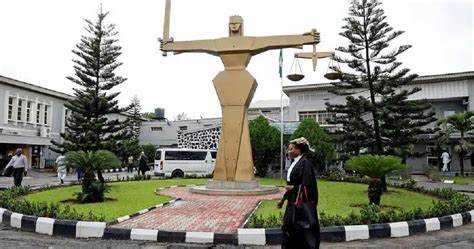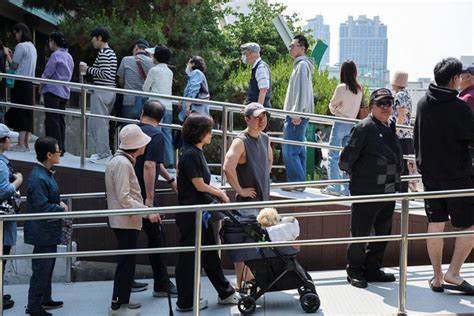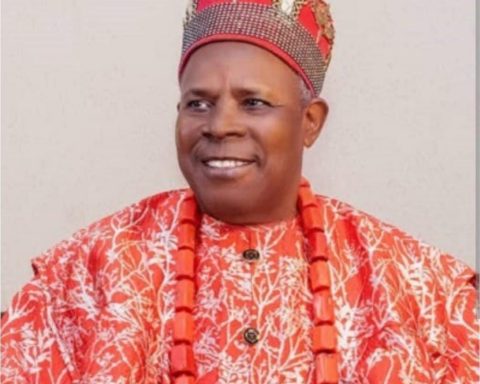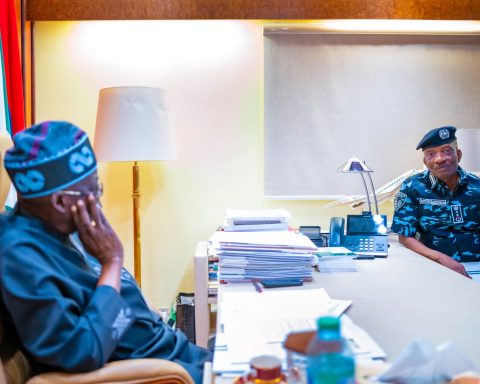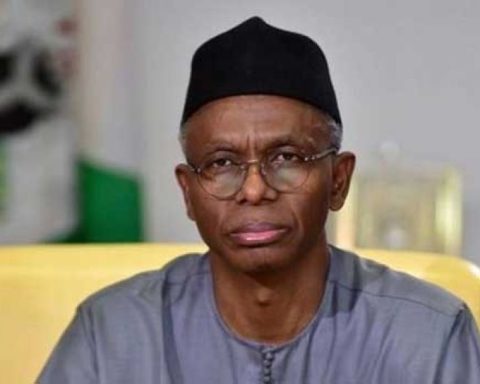As Nigeria grapples with repeated strikes and growing unrest among public workers, the Federal Government’s persistent failure to implement agreed minimum wages and improve working conditions is further adding to and fueling distrust as well as crippling vital sectors.
The ongoing strike by judiciary workers over unpaid wages and stalled implementation of the minimum wage underscores the urgent need for reforms. Without genuine commitment to workers’ welfare, the country risks deeper economic and social instability.
Join our WhatsApp ChannelRecently, the Judiciary Staff Union of Nigeria (JUSUN) began an indefinite nationwide strike on Monday, 2 June 2025, in protest against unresolved demands, including unpaid wage arrears spanning five months, non-implementation of the N70,000 national minimum wage, and the failure to apply a 25-35% salary increase.
While the Supreme Court chapter of JUSUN, alongside the National Judicial Council (NJC), withdrew from the strike following interventions by the Chief Justice of Nigeria and assurances of progress within two weeks, the situation on the ground tells a different story for other courts.
Notably, although the Federal High Court chapter initially declared it had withdrawn from the strike, the court was effectively locked down on Monday, with gates sealed with the inscription “JUSUN on Strike” and judicial activities brought to a standstill. This lockout underscores that the strike is very much ongoing across the Federal High Court and state high courts, reflecting the union’s firm stance amid stalled negotiations and highlighting the significant disruption to Nigeria’s judicial system.
The withdrawal of the Supreme Court chapter from the JUSUN strike raises serious questions about their continued alignment with the union’s collective action. As the apex court and traditionally the leadership core of JUSUN, their decision not to participate in the nationwide strike, because of interventions and assurances from the Chief Justice of Nigeria (CJN), can be interpreted as a sign of disunity and a lack of seriousness among JUSUN leaders.
While the Supreme Court chapter argues that joining the strike would undermine the CJN’s efforts and amount to a misplacement of priorities, this stance contrasts sharply with the ongoing strike by other federal and state high courts, including the Federal High Court, which proceeded with the industrial action despite initial claims of withdrawal. Such divergence within the union’s ranks suggests a fractured leadership and poses challenges to the solidarity and effectiveness of JUSUN’s collective bargaining power.
READ ALSO: Minimum Wage: Public Outcry As Senate Okays Over N60m Annual Salary For CJN, Supreme Court Justices
One might support what the Supreme Court has done, but that will be only if such a person has never understood the history of strikes and how workers are being treated in the country. The Federal Government (FG) of Nigeria has become notorious for repeatedly breaching agreements with various labour unions, undermining trust and provoking industrial actions across multiple sectors It then tried to show division within the ranks of unions to weaken them. Those union members who remain adamant become targets for any kind of persecution.
A prominent example is the Academic Staff Union of Universities (ASUU), often referred to as the “Chief of all Strikes” due to its frequent and prolonged industrial actions. ASUU has consistently entered into Memoranda of Understanding (MoUs) with the FG on issues such as salary enhancements, university funding, working conditions, and earned academic allowances. However, the government’s repeated failure to honour these agreements, such as the broken commitments that led to the five-month strike in 2013, the 10-month strike in 2017, and the eight-month strike in 2022, has severely disrupted Nigeria’s educational system and deepened mistrust between the parties.
Beyond ASUU, other unions such as the Trade Union Congress (TUC), the Nigeria Labour Congress (NLC) have faced similar frustrations. These examples collectively illustrate a persistent pattern of the Federal Government entering into agreements with unions only to delay, partially implement, or outright ignore their commitments.
It is indeed shameful and deeply disheartening that the Federal Government (FG) has failed to implement the new minimum wage for judiciary workers, especially considering that the courts are widely regarded as the hope of the common man. The National Assembly passed the amended National Minimum Wage Bill on 23 July 2024, increasing the minimum wage from N30,000 to N70,000 and reducing the review period from five to three years. This swift legislative action followed extensive negotiations involving the President, labour leaders, and state governors, culminating in President Bola Tinubu’s prompt transmission of the bill to the National Assembly, which passed it within hours.
Meanwhile, other sectors such as the National Youth Service Corps (NYSC) have begun implementing the new N70,000 minimum wage starting early 2025, following public pressure sparked by the protest of a corps member named Aisha Umar. Yet judiciary workers continue to face wage arrears and delays despite the clear legal backing of the new minimum wage law.
This failure might be considered particularly troubling given the judiciary’s critical role in upholding justice, protecting rights, and serving as the last refuge for ordinary Nigerians. If the very institution meant to safeguard the rights and hopes of the common man is itself undermined through poor treatment of its workers, public confidence in the justice system is continuously eroded.
Or is there a political game to be won through orchestrating the strike, as has happened in some cases? In Nigeria, officials often view strikes with suspicion, attributing them to political motivations. Yet, given the action of the Supreme Court on the ongoing JUSUN strike, any government could reasonably believe the union is politicising the issue.
A case of favouritism
The Federal Government’s commitment to judiciary workers remains questionable despite recent developments. In August 2024, President Bola Tinubu signed into law a bill granting a 300% salary increase for judicial officers, with the House of Representatives and Senate passing the bill earlier that year. This new salary structure, effective from January 2024, sets monthly pay for the Chief Justice of Nigeria (CJN) at about N5.39 million, Supreme Court justices at over N5 million, and other judicial officers receiving between N3.6 million and N4.2 million monthly. The National Industrial Court ruled in July 2024 that the government’s failure to review judicial salaries for over 14 years was unlawful and mandated immediate implementation.
Attorney-General Lateef Fagbemi confirmed in October 2024 that the FG had begun implementing this 300% pay rise, describing it as a major step to strengthen the judiciary. However, despite this high-profile salary overhaul for judges, judiciary workers below judicial officers, such as court staff, continue to face unpaid wages, including arrears and non-implementation of the N70,000 national minimum wage, which has triggered strikes by the JUSUN.
Way out of the problem
To address the challenges faced by workers and reduce frequent strikes, the Federal Government of Nigeria must take practical and focused steps. First, diversifying the economy by investing in agriculture, manufacturing, technology, and services will create more jobs and increase government revenue beyond oil dependence. The government also needs to manage its budget responsibly and fight corruption to ensure funds meant for workers’ welfare are properly used.
Improving communication and trust with labour unions is essential. Regular, open dialogue can prevent misunderstandings, and the timely implementation of agreements on pay and working conditions will build confidence and reduce industrial actions. Investing in infrastructure like electricity and roads will boost economic growth and improve public services.
Furthermore, enhancing workers’ skills through better training and education will increase their employability. For the JUSUN, solidarity at this time is what will show the Chief Justice and the government that the union is serious about its demands and rights.
Dr Mbamalu, a Jefferson Journalism Fellow, member of the Nigerian Guild of Editors and Media Consultant, is the publisher of Prime Business Africa
Dr. Marcel Mbamalu is a distinguished communication scholar, journalist, and entrepreneur with three decades of experience in the media industry. He holds a Ph.D. in Mass Communication from the University of Nigeria, Nsukka, and serves as the publisher of Prime Business Africa, a renowned multimedia news platform catering to Nigeria and Africa's socio-economic needs.
Dr. Mbamalu's journalism career spans over two decades, during which he honed his skills at The Guardian Newspaper, rising to the position of senior editor. Notably, between 2018 and 2023, he collaborated with the World Health Organization (WHO) in Northeast Nigeria, training senior journalists on conflict reporting and health journalism.
Dr. Mbamalu's expertise has earned him international recognition. He was the sole African representative at the 2023 Jefferson Fellowship program, participating in a study tour of the United States and Asia (Japan and Hong Kong) on inclusion, income gaps, and migration issues.
In 2020, he was part of a global media team that covered the United States presidential election.
Dr. Mbamalu has attended prestigious media trainings, including the Bloomberg Financial Journalism Training and the Reuters/AfDB Training on "Effective Coverage of Infrastructural Development in Africa."
As a columnist for The Punch Newspaper, with insightful articles published in other prominent Nigerian dailies, including ThisDay, Leadership, The Sun, and The Guardian, Dr. Mbamalu regularly provides in-depth analysis on socio-political and economic issues.


